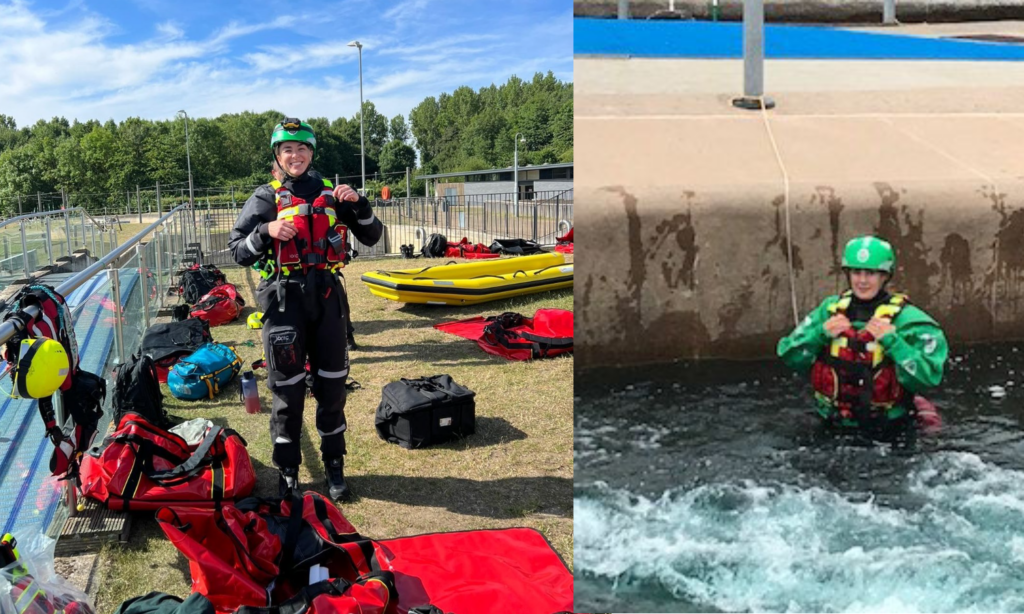International Women’s Day 2023: London Ambulance Service doubles number of women recruited to “high-risk” team
London Ambulance Service (LAS) has doubled the number of women who are specially trained to work in the most dangerous environments, after a targeted recruitment campaign.
Hazardous Area Response Team (HART) paramedics respond to patients in the most perilous of situations including fires, collapsed buildings, people trapped under trains or vehicles, people in water, or those in hard-to-reach places. HART are also trained to respond to chemical incidents, terror attacks and other high risk jobs.
LAS has been so successful in recruiting women to HART that they are now sharing their approach and methods with other ambulance trusts across the country.
Paramedics Rae Childs and Natalie Cole have over 10 years’ experience with LAS between them but are new to HART. They still treat ill or injured patients but now face an extra challenge of responding to them in dangerous conditions.

Rae said: “We’ve been going through a lot of training which includes working at height on scaffolding, off-roading utility terrain vehicles and water rescue.
“It’s intense and challenging but I love it and I can’t believe I have the opportunity to learn all these new skills.”
As well as being trained to use their life-saving clinical knowledge in hazardous environments, HART paramedics also spend time training alongside emergency service colleagues in the police and fire services.
Natalie said: “We are working alongside some of the most elite and experienced units in the country. It’s taking us out of our comfort zones but actually it is so empowering to get this opportunity -knowing we are specially trained to help people in the most difficult, dangerous and challenging circumstances.”
Previously the team of 98 HART paramedics only included 11 women. That number now stands at 22 with more women already applying.
Natasha Wills is the Director of Resilience and Specialist Assets at LAS and HART paramedics are one of the specialties in her department.
She has worked hard to improve diversity and said: “This has traditionally been a male-dominated team – and this is true of HART across the country – so we made a deliberate effort to change that.
“We held awareness days and encouraged female paramedics to come along and try out some of the training activities for themselves.
“So rather than being intimidated by the gear, the uniform, the physical activity, when women saw an opportunity to apply, they found it a rewarding way to progress their careers. I would encourage any paramedic not to rule themselves out, but to give it a go.”
LAS and Yorkshire Ambulance Service were the first ambulance services to set up HART, in response to the 2005 London terror attacks.

Follow us on social media: